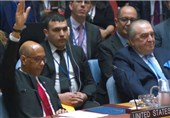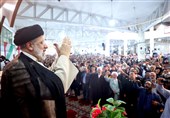Manama Regime Rejects UN Criticism over Detention of Rajab
TEHRAN (Tasnim) – The Bahraini regime rejected the findings of the UN Working Group on Arbitrary Detention, claiming that Nabeel Rajab’s offenses did not relate to his political views and that his judicial trials had been independent and transparent.
Bahrain’s detention of activist Nabeel Rajab is unlawful and violates his right to freedom of expression, UN human rights experts have found, calling on the kingdom to release him immediately with compensation.
“As in all countries, there is a distinct difference between legitimate criticism of government and attempts to incite public disorder,” a government statement emailed to Reuters said on Thursday.
Rajab was sentenced to five years in prison in February for criticizing Saudi Arabia’s airstrikes in Yemen and writing tweets accusing Bahrain’s prison authorities of torture.
A leading figure in the pro-democracy protests, he was already serving a two-year term over a news interview in which he said Bahrain tortured political prisoners.
In a formal opinion posted overnight, the UN panel of five independent experts said that provisions of Bahrain’s penal code were “so vague and overly broad” that people were punished for merely exercising their rights under international law.
“The Working Group, therefore, considers that Rajab’s deprivation of liberty is arbitrary,” it said, adding, “No such trial” should have taken place.
Rajab’s political views were “clearly at the center of the present case” and the government attitude had been “discriminatory.”
“He has been the target of persecution, including deprivation of liberty, for many years and there is no other explanation for this except that he is exercising his right to express such views and convictions,” it said.
Rajab, held since June 2016, should be released immediately and compensated, it said.
The opinions of the panel are based on national obligations under international human rights law that they have ratified and are thus legally binding in nature, it added.






